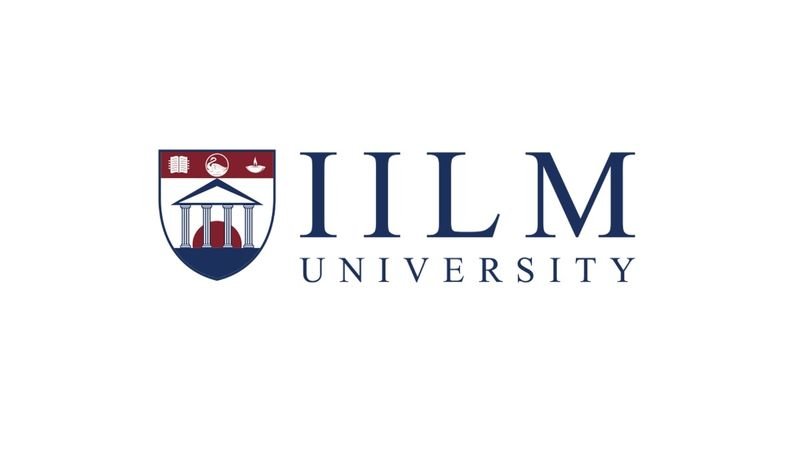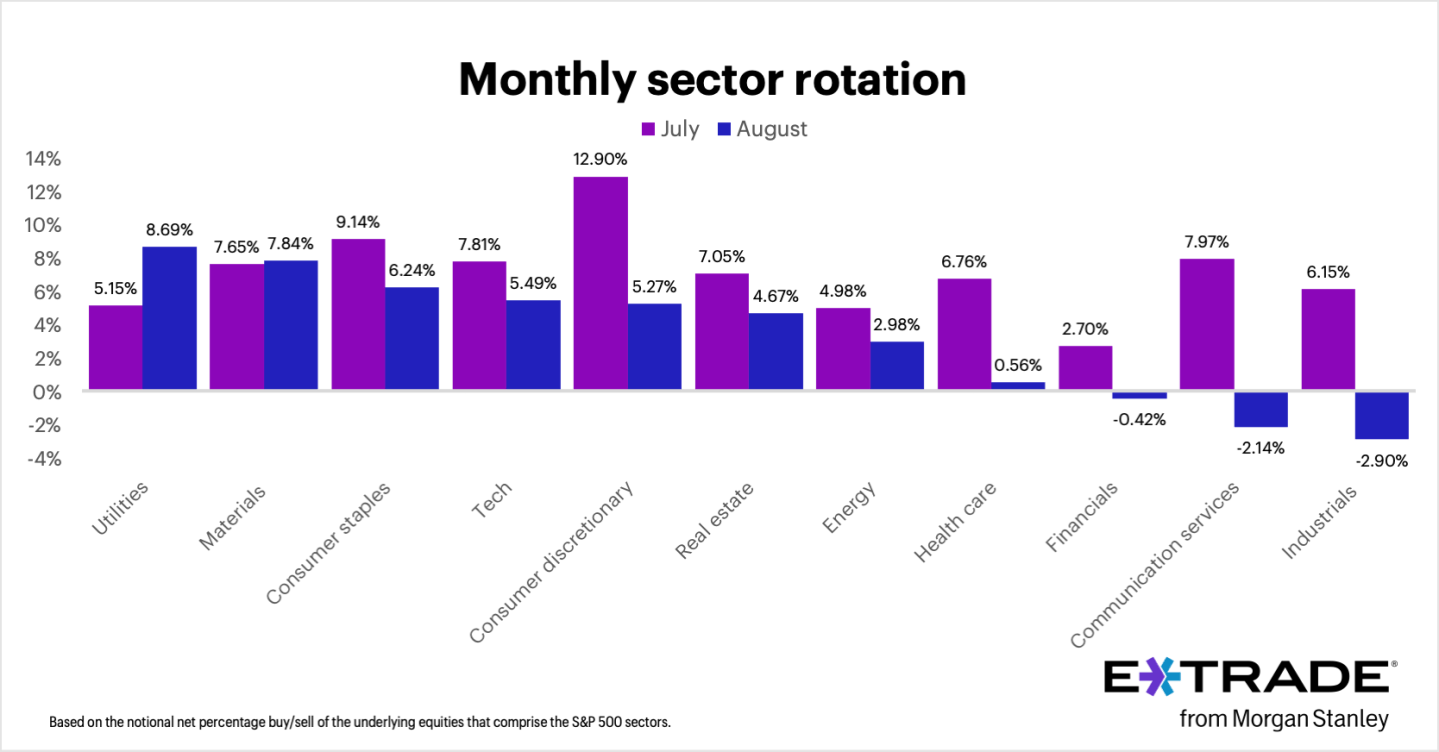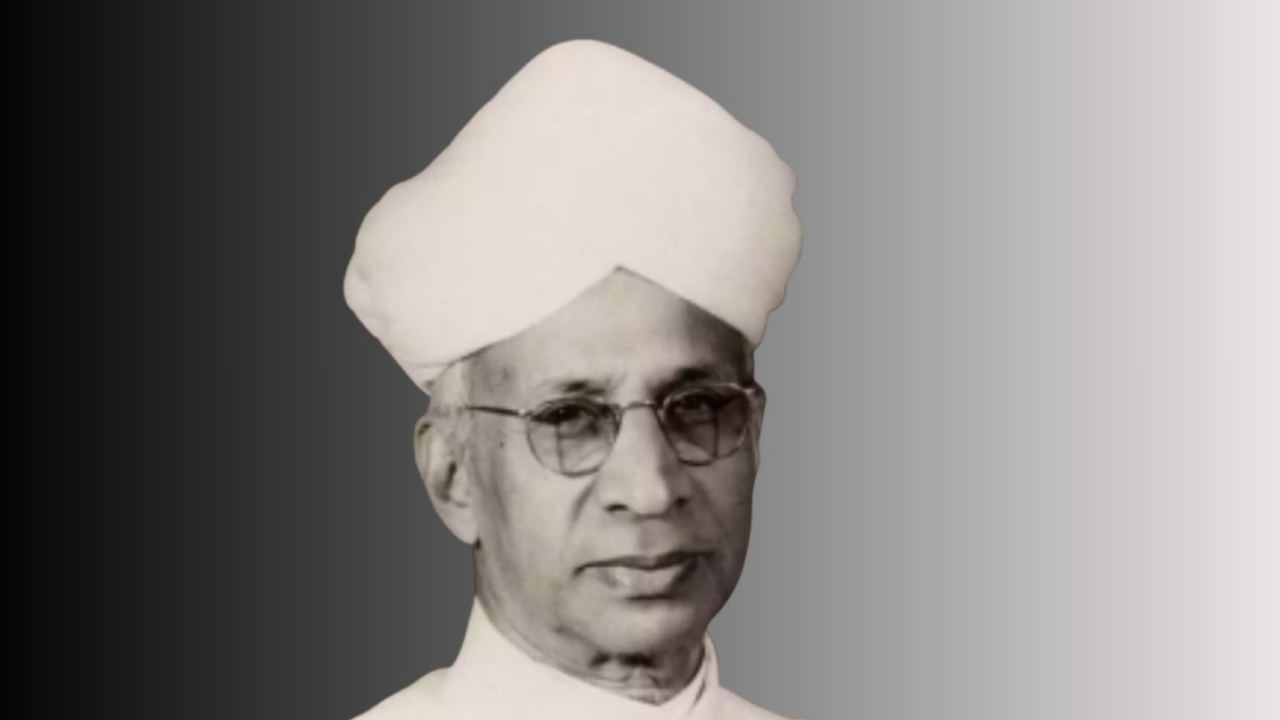Ethics & Policy
IILM University and The Dr Pritam Singh Foundation Host Round Table Conference on “Human at Core” Exploring AI, Ethics, and the Future

Hyderabad (Telangana) [India], September 4: IILM University, in collaboration with The Dr Pritam Singh Foundation, hosted a high-level round table discussion on the theme “Human at Core: Conversations on AI, Ethics and Future” at Tech Mahindra, Cyberabad, on 29th August 2025. The event brought together distinguished leaders from academia, government, and industry to engage in a timely and thought-provoking dialogue on the ethical imperatives of artificial intelligence and the crucial role of human-centric leadership in shaping a responsible technological future. The proceedings began with an opening address by Sri Gaddam Prasad Kumar, Speaker, Telangana Legislative Assembly, who emphasised the need to ensure that technology remains a tool in the service of humanity. This was followed by a keynote address delivered by Sri Padmanabhaiah Kantipudi, IAS (Retd.), Chairman of the Administrative Staff College of India (ASCI), who highlighted the growing tension between technological acceleration and ethical oversight.
The event featured two significant panel discussions, each addressing the complex intersections between technology, ethics, and leadership. The first panel, moderated by Mamata Vegunta, Executive Director and Head of HR at DBS Tech India, examined the question, “AI’s Crossroads: The Choice Between Progress and Principle.” The discussion reflected on the critical junctures at which leaders must make choices that balance innovation with responsibility. Panellists, including Deepak Gowda of the Union Learning Academy, Dr. Deepak Kumar of IDRBT, Srini Vudumula of Novelis Consulting, and Gaurav Maheshwari of Signode India Limited, shared their insights on the pressing need for robust ethical frameworks that evolve alongside AI.
The second panel, moderated by Vinay Agrawal, Global Head of Business HR at Tech Mahindra, focused on the theme “Human-Centred AI: Why Leadership Matters More Than Ever.” This session brought to light the growing expectation of leaders to act not just as enablers of technological progress, but as custodians of its impact. Panellists Manoj Jha from Makeen Energy, Dr Anadi Pande from Mahindra University, Rajesh Dhuddu of PwC, and Kiranmai Pendyala, investor and former UWH Chairperson, collectively underlined the importance of empathy, accountability, and foresight in guiding AI development.
Speaking at the event, Dr Ravi Kumar Jain, Director, School of Management – IILM University Gurugram, remarked, “We are at a defining moment in human history, where the question is not merely about how fast we can innovate, but how wisely we choose to do so. At IILM, we believe in nurturing leaders who are not only competent but also conscious of their responsibilities to society.” His sentiments were echoed by Prof Harivansh Chaturvedi, Director General at IILM Lodhi Road, who affirmed the university’s continued commitment to promoting responsible leadership through dialogue, collaboration, and critical inquiry. Across both panels, there was a shared recognition that ethical leadership must keep pace with the rapid transformations driven by AI, and that collaborative efforts across sectors will be essential to ensure that innovation serves the broader goals of equity, dignity, and humanity.
The discussions concluded with a renewed call to action for academic institutions, industry leaders, and policymakers to work together in shaping a future where technology empowers without eroding core human values. In doing so, the event reaffirmed the central message behind its theme that in an increasingly digital world, it is important now more than ever to keep it human at the core.
(Disclaimer: The above press release comes to you under an arrangement with PNN and PTI takes no editorial responsibility for the same.). PTI PWR
(This content is sourced from a syndicated feed and is published as received. The Tribune assumes no responsibility or liability for its accuracy, completeness, or content.)
Ethics & Policy
Tech leaders in financial services say responsible AI is necessary to unlock GenAI value

Good morning. CFOs are increasingly responsible for aligning AI investments with business goals, measuring ROI, and ensuring ethical adoption. But is responsible AI an overlooked value creator?
Scott Zoldi, chief analytics officer at FICO and author of more than 35 patents in responsible AI methods, found that many customers he’s spoken to lacked a clear concept of responsible AI—aligning AI ethically with an organizational purpose—prompting an in-depth look at how tech leaders are managing it.
According to a new FICO report released this morning, responsible AI standards are considered essential innovation enablers by senior technology and AI leaders at financial services firms. More than half (56%) named responsible AI a leading contributor to ROI, compared to 40% who credited generative AI for bottom-line improvements.
The report, based on a global survey of 254 financial services technology leaders, explores the dynamic between chief AI/analytics officers—who focus on AI strategy, governance, and ethics—and CTOs/CIOs, who manage core technology operations and alignment with company objectives.
Zoldi explained that, while generative AI is valuable, tech leaders see the most critical problems and ROI gains arising from responsible AI and true synchronization of AI investments with business strategy—a gap that still exists in most firms. Only 5% of respondents reported strong alignment between AI initiatives and business goals, leaving 95% lagging in this area, according to the findings.
In addition, 72% of chief AI officers and chief analytics officers cite insufficient collaboration between business and IT as a major barrier to company alignment. Departments often work from different metrics, assumptions, and roadmaps.
This difficulty is compounded by a widespread lack of AI literacy. More than 65% said weak AI literacy inhibits scaling. Meanwhile, CIOs and CTOs report that only 12% of organizations have fully integrated AI operational standards.
In the FICO report, State Street’s Barbara Widholm notes, “Tech-led solutions lack strategic nuance, while AI-led initiatives can miss infrastructure constraints. Cross-functional alignment is critical.”
Chief AI officers are challenged to keep up with the rapid evolution of AI. Mastercard’s chief AI and data officer, Greg Ulrich, recently told Fortune that last year was “early innings,” focused on education and experimentation, but that the role is shifting from architect to operator: “We’ve moved from exploration to execution.”
Across the board, FICO found that about 75% of tech leaders surveyed believe stronger collaboration between business and IT leaders, together with a shared AI platform, could drive ROI gains of 50% or more. Zoldi highlighted the problem of fragmentation: “A bank in Australia I visited had 23 different AI platforms.”
When asked about innovation enablers, 83% of respondents rated cross-departmental collaboration as “very important” or “critical”—signaling that alignment is now foundational.
The report also stresses the importance of human-AI interaction: “Mature organizations will find the right marriage between the AI and the human,” Zoldi said. And that involves human understanding for where to ”best place AI in that loop,” he said.
Sheryl Estrada
sheryl.estrada@fortune.com
Leaderboard
Brian Robins was appointed CFO of Snowflake (NYSE: SNOW), an AI Data Cloud company, effective Sept. 22. Snowflake also announced that Mike Scarpelli is retiring as CFO. Scarpelli will stay a Snowflake employee for a transition period. Robins has served as CFO of GitLab Inc., a technology company, since October 2020. Before that, he was CFO of Sisense, Cylance, AlienVault, and Verisign.
Big Deal
August marked the S&P 500’s fourth consecutive month of gains, with E*TRADE clients net buyers in eight out of 11 sectors, Chris Larkin, managing director of trading and investing, said in a statement. “But some of that buying was contrarian and possibly defensive,” Larkin noted. “Clients rotated most into utilities, a defensive sector that was actually the S&P 500’s weakest performer last month. Another traditionally defensive sector, consumer staples, received the third-most net buying.” By contrast, clients were net sellers in three sectors—industrials, communication services, and financials—which have been among the S&P 500’s stronger performers so far this year.
“Given September’s history as the weakest month of the year for stocks, it’s possible that some investors booked profits from recent winners while increasing positions in defensive areas of their portfolios,” Larkin added.

Going deeper
“Warren Buffett’s $57 billion face-plant: Kraft Heinz breaks up a decade after his megamerger soured” is a Fortune report by Eva Roytburg.
From the report: “Kraft Heinz, the packaged-food giant created in 2015 by Warren Buffett and Brazilian private equity firm 3G Capital, is officially breaking up. The Tuesday announcement ends one of Buffett’s highest-profile bets—and one of his most painful—as the merger that once promised efficiency and dominance instead wiped out roughly $57 billion, or 60%, in market value. Shares slid 7% after the announcement, and Berkshire Hathaway still owns a 27.5% stake.” You can read the complete report here.
Overheard
“Effective change management is the linchpin of enterprise-wide AI implementation, yet it’s often underestimated. I learned this first-hand in my early days as CEO at Sanofi.”
—Paul Hudson, CEO of global healthcare company Sanofi since September 2019, writes in a Fortune opinion piece. Previously, Hudson was CEO of Novartis Pharmaceuticals from 2016 to 2019.
Ethics & Policy
Humans at Core: Navigating AI Ethics and Leadership

Hyderabad recently hosted a vital dialogue on ‘Human at Core: Conversations on AI, Ethics and Future,’ co-organized by IILM University and The Dr Pritam Singh Foundation at Tech Mahindra, Cyberabad. Gathering prominent figures from academia, government, and industry, the event delved into the ethical imperatives of AI and human-centric leadership in a tech-driven future.
The event commenced with Sri Gaddam Prasad Kumar advocating for technology as a servant to humanity, followed by a keynote from Sri Padmanabhaiah Kantipudi, who addressed the friction between rapid technological growth and ethical governance. Two pivotal panels explored the crossroads of AI’s progress versus principle and leadership’s critical role in AI development.
Key insights emerged around empathy and foresight in AI’s evolution, as leaders like Manoj Jha and Rajesh Dhuddu emphasized. Dr. Ravi Kumar Jain highlighted the collective responsibility to steer innovation wisely, aligning technological advancement with human values. The event reinforced the importance of cross-sector collaboration to ensure technology enhances equity and dignity globally.
Ethics & Policy
Why Does India Celebrate Teachers’ Day One Month Before the World? | Events

Why Does India Celebrate Teachers’ Day One Month Before the World? (Image Credits: President of India/nic)
The United Nations Educational, Scientific and Cultural Organisation (UNESCO), United Nations Children’s Fund (UNICEF), International Labour Organisation (ILO) and Education International celebrates International Teachers day to commemorate the adoption of the 1966 ILO/UNESCO recommendation concerning the status of teachers, regarding the rights and responsibilities of teachers and standards for their initial preparation and further education, recruitment, employment, and teaching and learning conditions. World Teachers’ Day, also known as International Teachers’ Day, is held annually on October 5.
Since 1966, India has celebrated Teachers’ Day on September 5, paying tribute to Radhakrishnan’s remarkable approach to education and students.
Why does India celebrate this day before the world?
Every year in India, teachers’ day is celebrated on September 5 to mark the birthday of Philosopher and Bharat Ratna awardee, Dr Sarvepalli Radhakrishnan. When Dr Radhakrishnan became the President of India in 1962, few students visited him with a request to celebrate his birthday on September 5. However, he suggested that the students dedicate this day to teachers. Thus, September 5 is observed as Teachers’ Day in India.
S Radhakrishnan: Philosopher of Hinduism
As an academic, philosopher, and statesman, Sarvepalli Radhakrishnan (1888-1975) was one of the most recognized and influential Indian thinkers in academic circles in the 20th century. He dedicated his whole life working to defining, defending, and disseminating the Hindu religion. He was known well in the Western philosophical contexts between India and the West, and credited for his role in shaping the West’s understanding of Hinduism.
By the 1920s, Dr Radhakrishnan was established as one of India’s most respected academics. He held the prestigious King George V Chair at the Calcutta University from 1921 to 1932, was the second vice-chancellor of Andhra University from 1931 to 1936, and the fourth vice-chancellor of Banaras Hindu University from 1939 to 1948. He also held the Spalding Chair of Eastern Religion and Ethics at University of Oxford from 1936 to 1952. Radhakrishnan was knighted in 1931.
Traditions and Celebrations
Students nationwide come together to express gratitude to their teachers and mentors. Institutions organise special activities and programs to honor the teachers. Some traditions like Felicitation Ceremonies, flower arrangements and Saraswati Puja are associated with teachers’ day in India. Many students present their teachers with a heartfelt note, handmade card or a cake on this day.
Events & Festivals
-

 Business6 days ago
Business6 days agoThe Guardian view on Trump and the Fed: independence is no substitute for accountability | Editorial
-
Tools & Platforms3 weeks ago
Building Trust in Military AI Starts with Opening the Black Box – War on the Rocks
-

 Ethics & Policy1 month ago
Ethics & Policy1 month agoSDAIA Supports Saudi Arabia’s Leadership in Shaping Global AI Ethics, Policy, and Research – وكالة الأنباء السعودية
-

 Events & Conferences4 months ago
Events & Conferences4 months agoJourney to 1000 models: Scaling Instagram’s recommendation system
-

 Jobs & Careers2 months ago
Jobs & Careers2 months agoMumbai-based Perplexity Alternative Has 60k+ Users Without Funding
-

 Education2 months ago
Education2 months agoVEX Robotics launches AI-powered classroom robotics system
-

 Funding & Business2 months ago
Funding & Business2 months agoKayak and Expedia race to build AI travel agents that turn social posts into itineraries
-

 Podcasts & Talks2 months ago
Podcasts & Talks2 months agoHappy 4th of July! 🎆 Made with Veo 3 in Gemini
-

 Podcasts & Talks2 months ago
Podcasts & Talks2 months agoOpenAI 🤝 @teamganassi
-

 Education2 months ago
Education2 months agoMacron says UK and France have duty to tackle illegal migration ‘with humanity, solidarity and firmness’ – UK politics live | Politics

